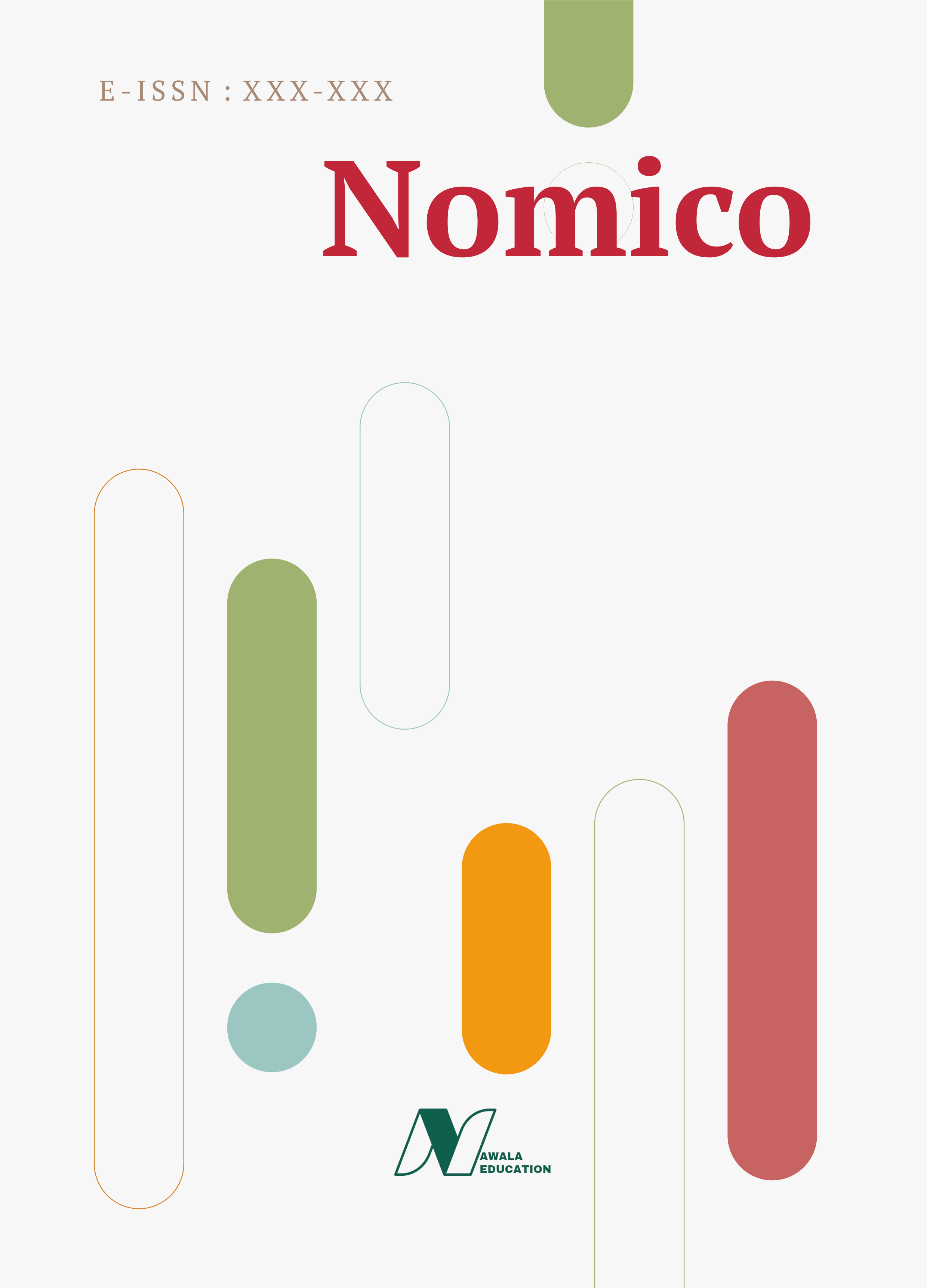The Impact of Neoliberal Policies on Social Welfare: Case Studies in Developing Countries
DOI:
https://doi.org/10.62872/csr3f836Keywords:
Neoliberal Policies, Social Welfare, Social Inequality, Developing Countries, Privatization, DeregulationAbstract
This article analyzes the impact of neoliberal policies on social welfare in developing countries, focusing on the implementation of free market principles, privatization, deregulation, and a reduced role of the state in the economy. While these policies aim to improve economic efficiency and growth, this research finds that neoliberal implementation in developing countries often exacerbates social inequality and reduces the poor's access to basic services such as health, education and social protection. The research identifies negative impacts such as public sector privatization that increases costs for low-income earners, deregulation that makes workers more vulnerable to exploitation, and social budget cuts that reduce the quality of services for marginalized groups. Although some countries experienced economic growth as a result of these policies, the unequal distribution of economic benefits led to increased social inequality. This article suggests the need for more inclusive and sustainable economic policies that can mitigate the negative impacts of neoliberalism, as well as strengthen social security and access to basic services in developing countries.
Downloads
References
Harvey, D. (2005). A Brief History of Neoliberalism. Oxford University Press. https://doi.org/10.1093/oso/9780199283262.001.0001
Stiglitz, J. E. (2002). Globalization and Its Discontents. W. W. Norton & Company. https://doi.org/10.1007/978-1-137-28787-8_57
Chang, H.-J. (2008). Bad Samaritans: The Myth of Free Trade and the Secret History of Capitalism. Bloomsbury Press. https://doi.org/10.1177/03063968090510010103
Steger, M. B., & Roy, R. K. (2010). Neoliberalism: A Very Short Introduction. Oxford University Press. https://doi.org/10.1093/actrade/9780199560516.001.0001
Prasad, M. (2006). The Politics of Free Markets: The Rise of Neoliberal Economic Policies in Britain, France, Germany, and the United States. University of Chicago Press. https://doi.org/10.1525/ctx.2007.6.1.67
Ritzer, G. (2011). Globalization: The Essentials. John Wiley & Sons. https://doi.org/10.1002/9780470670590
Bhagwati, J. (2004). In Defense of Globalization. Oxford University Press. https://doi.org/10.1057/9780230524422_2
Sachs, J. (2005). The End of Poverty: Economic Possibilities for Our Time. Penguin Press. https://doi.org/10.2307/20034362
Stiglitz, J. E. (2002). Globalization and Its Discontents. W.W. Norton & Company. https://doi.org/10.1007/978-1-137-28787-8_57
Harvey, D. (2005). A Brief History of Neoliberalism. Oxford University Press. https://doi.org/10.1093/oso/9780199283262.001.0001
ILCAN, S. (2009). Privatizing Responsibility: Public Sector Reform under Neoliberal Government. Canadian Review of Sociology/Revue Canadienne de Sociologie, 46(3), 207–234. Portico. https://doi.org/10.1111/j.1755-618x.2009.01212.x
World Bank. (2018). World Development Report 2018: Learning to Realize Education's Promise. World Bank Group. https://doi.org/10.1596/978-1-4648-1096-1
PURBA, R. A. (2012). KONSEP WELFARE STATE MAHATMA GANDHI SEBAGAI IDIOLOGI ALTERNATIF UNTUK MENAHAN NEO-LIBERALISME (STUDI KASUS JNEGARA INDIA) (Doctoral dissertation, Universitas Muhammadiyah Yogyakarta). https://doi.org/10.18196/jai.2016.0054.186-196
PURBA, R. A. (2012). KONSEP WELFARE STATE MAHATMA GANDHI SEBAGAI IDIOLOGI ALTERNATIF UNTUK MENAHAN NEO-LIBERALISME (STUDI KASUS JNEGARA INDIA) (Doctoral dissertation, Universitas Muhammadiyah Yogyakarta). https://doi.org/10.18196/jai.2016.0054.186-196
Utaminingsih, N. (2019). WAJAH PANGAN ASIA TIMUR DALAM SELIMUT NEOLIBERALISME STUDI KASUS: CINA. Review of International Relations, 1(1). https://doi.org/10.24252/rir.v1i1.9300
Kharisma, B. (2014). Good Governance Sebagai Suatu Konsep Dan Mengapa Penting Dalam Sektor Publik Dan Swasta (Suatu Pendekatan Ekonomi Kelembagaan). Jurnal Buletin Studi Ekonomi, 19(1), 1-34. https://doi.org/10.24843/eeb.2018.v07.i08.p02
Lutfiana, R. F. (2014). Globalisasi Ekonomi, UU Neoliberal Dan Masa Depan Kekayaan SDA Indonesia. Jurnal Pendidikan Ilmu Sosial, 23(2), 1-14. https://doi.org/10.17509/jpis.v23i2.1620
Pratama, J. A., Habibah, Y. N., & Alam, T. G. Sekuritisasi Pandemi Covid-19 dan Tatanan Neoliberal: Menuju Deliberalisasi Ekonomi Global?. https://doi.org/10.20473/jhi.v14i1.19670
Sunyoto, B. T. Menggugat Peran Negara menghadang Modernisasi Neoliberal. https://doi.org/10.20885/unisia.vol18.iss33.art10
Nur, A. A. J. (2021). IMPLEMENTASI KEBIJAKAN PROGRAM BANTUAN SOSIAL TUNAI TERHADAP KELOMPOK MISKIN TERDAMPAK COVID-19 (Studi Kasus: Kelurahan Tamamaung, Kecamatan Panakkukang Kota Makassar)= IMPLEMENTATION OF CASH SOCIAL ASSISTANCE PROGRAM POLICIES FOR POOR GROUPS AFFECTED BY COVID-19 (Case Study: Tamamaung Urban Village, Panakkukang Sub-District, Makassar City) (Doctoral dissertation, Universitas Hasanuddin). https://doi.org/10.31445/jskm.2015.190108
Suharto, E. (2011). Kebijakan sosial. Bandung: Alfabeta. https://doi.org/10.33007/inf.v8i3.1006
Sahban, M. A., & Se, M. M. (2018). Kolaborasi Pembangunan Ekonomi di Negara Berkembang (Vol. 1). Sah Media. https://doi.org/10.29244/jekp.5.2.68-86
Harahap, H. I. (2023). Neoliberalisme: Sebuah Konsep Pemerintahan Publik Swasta. Langgas: Jurnal Studi Pembangunan, 2(2), 57-61. https://doi.org/10.32734/ljsp.v2i2.13664
Sufriadi, Y. (2010). Penerapan Hukum Progresif dalam Penegakan Hukum di tengah Krisis Demokrasi. Jurnal Hukum Ius Quia Iustum, 17(2), 233-248. https://doi.org/10.20885/iustum.vol17.iss2.art3
Syawie, M. (2014). Pembangunan yang menyejahterakan masyarakat indonesia: sebuah kajian konsep. Sosio Informa: Kajian Permasalahan Sosial dan Usaha Kesejahteraan Sosial, 19(3). https://doi.org/10.33007/inf.v19i3.99
Pradana, R. A. (2020). Sosial, Politik, dan Ekonomi Kesejahteraan Sosial: Refleksi Demokrasi dan Fenomena Sosial Indonesia. Paradigma POLISTAAT: Jurnal Ilmu Sosial dan Ilmu Politik, 3(2), 87-101. https://doi.org/10.23969/paradigmapolistaat.v3i2.3717
Handayani, F. A., & Nur, M. I. (2019). Implementasi good governance di Indonesia. Publica: Jurnal Pemikiran Administrasi Negara, 11(1), 1-11. https://doi.org/10.15575/jpan.v11i1.7631
Mulyana, A. (2011). Eksplanasi Teoritik untuk Kebijakan Pro-Kesejahteraan di Indonesia. Jurnal Hak Asasi Manusia, 7(7), 113-141. https://doi.org/10.58823/jham.v7i7.64
Parmitasari, R. D. A., & Alwi, Z. (2020). Aliran Ekonomi Neoliberalisme: Suatu Pengantar. Study of Scientific and Behavioral Management (SSBM), 1(3), 59-69. https://doi.org/10.53654/mv.v2i2.106
Sulubere, M. B. (2016). Neoliberalisme: Genealogi Konseptual, Relevansi Dan Implikasinya Terhadap Kebijakan Sosial Modern. Sosio Informa, 2(3). https://doi.org/10.33007/inf.v2i3.838
Winarno, B. (2016). Kebijakan publik era globalisasi. Media Pressindo. https://doi.org/10.33005/scan.v14i3.1687
Reindrawati, D. Y., & Sos, S. (2017). BUKU BISNIS SOSIAL UNTUK PEMBANGUNAN INKLUSIF (Analisis Teori dan Penerapan dengan studi kasus di Jawa Timur. https://doi.org/10.56870/ambitek.v3i2.101
Roemer, J. E. (2013). “Economic Development as Opportunity Equalization.” The World Bank Economic Review, 28(2), 189–209. https://doi.org/10.1093/wber/lht023
Sutrisno, E. (2007). IMPLIKASI YURIDIS ATAS EKSPOR ROTAN DI ERA PERDAGANGAN BEBAS (Studi Kasus Pemberlakuan Keputusan Menteri Perdangan No. 12 M-DAG/PER/6/2005). HERMENEUTIKA: Jurnal Ilmu Hukum, 1(1). https://doi.org/10.33603/hermeneutika.v1i1.1153
Sufyan, A. (2015). Gerakan Sosial Masyarakat Pegunungan Kendeng Utara Melawan Pembangunan Pabrik Semen di Kabupaten Rembang (Doctoral dissertation, UNIVERSITAS AIRLANGGA). https://doi.org/10.24198/cosmogov.v3i1.12634
Swank, D. (2006). Tax Policy in an Era of Internationalization: Explaining the Spread of Neoliberalism. International Organization, 60(04). https://doi.org/10.1017/s0020818306060280
Simanjuntak, K. M. (2015). Implementasi kebijakan desentralisasi pemerintahan di Indonesia. Jurnal Bina Praja, 7(2), 111-130. https://doi.org/10.21787/jbp.07.2015.111-130
Wilthagen, T., & Tros, F. (2002). The concept of ‘flexicurity’: a new approach to regulating employment and labour markets. Transfer: European Review of Labour and Research, 10(2), 166–186. https://doi.org/10.1177/102425890401000204
Downloads
Published
Issue
Section
License
Copyright (c) 2024 Dina Rosari, Fatchur Rohman, Anita Latuheru, Victor F. Pasalbessy (Author)

This work is licensed under a Creative Commons Attribution-ShareAlike 4.0 International License.

This work is licensed under a Creative Commons Attribution-ShareAlike 4.0 International License.











